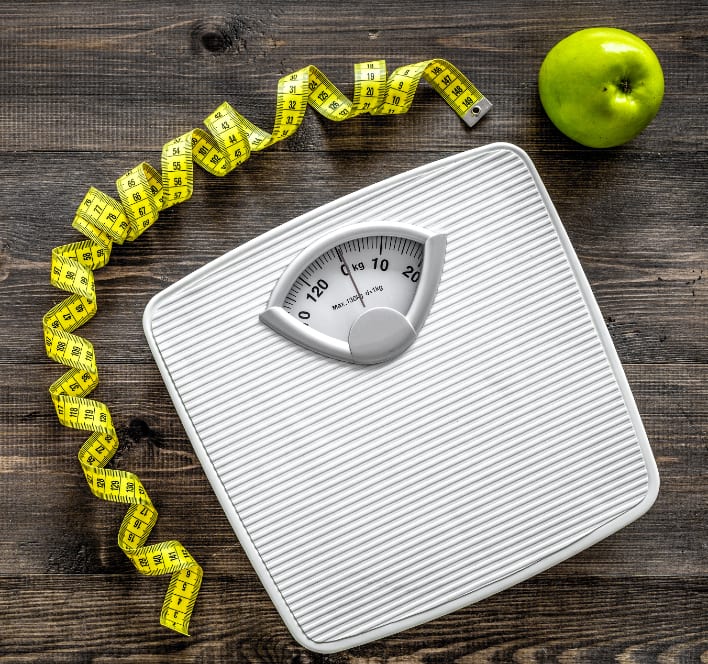We’ve all heard that losing weight can come with a myriad of health benefits, but could shedding the excess pounds help to ease back pain? According to the Centers for Disease Control and Prevention, today, over 70% of American adults over the age of 20 are overweight, and nearly 40% are obese. Back pain is also among the leading causes of disability in the United States, affecting over half of all Americans at least once in their lives.
If you suffer from back pain, you are well aware of just how limiting it can be. But did you know that excess weight and back pain can be linked? The relationship between back pain and weight loss may be more dynamic than most people realize. is here to help you understand this relationship.
Excess weight can put additional strain on the spine, leading to discomfort and pain. Studies have shown that individuals with higher body mass index (BMI) are more likely to experience back pain. This is because the extra weight can cause wear and tear on the spine, leading to conditions such as herniated discs and degenerative disc disease.
Moreover, there is a significant relationship between obesity and chronic low back pain. Excess weight exacerbates chronic low back pain, making it more difficult for individuals to find relief.
Does Being Overweight Hurt Your Lower Back?
Being overweight and obese is associated with high blood pressure, type 2 diabetes, heart disease, and stroke. It’s also not surprising that excess weight raises the likelihood of back pain, joint discomfort, and muscle strain. The lower back is especially susceptible to pressure related to excess weight.
Dropping Pounds Can Relieve the Spine of Extra Pressure
Our spines help to keep us upright as we fight gravity every day to perform our daily tasks, but if you’re overweight, your spine is going to have a much harder time fighting that war. Did you know that for every four pounds of additional weight that your body carries, there are 16 extra pounds of pressure placed on the intervertebral discs in your spine?
This pressure compresses the lumbar spine in the lower back, often resulting in a pinched nerve and lingering pain. Those who are overweight and suffering from back pain may find that losing weight could help to relieve this pressure and reduce their pain.
Excess Body Fat Can Contribute to Joint Damage.
When too much uric acid builds up in your body, it can cause sharp crystals to lodge into your joints, also known as gout – a painful form of arthritis. Uric acid is normally eliminated through the kidneys, but the heavier you are, the less effective your kidneys are. Excess weight can also exacerbate joint pain, particularly in weight-bearing joints like the knees, leading to conditions such as knee osteoarthritis.
According to the National Institute of Diabetes and Digestive and Kidney Diseases, those who are overweight are also at a higher risk for:
- Type 2 diabetes
- Heart disease
- Stroke
- Fatty liver disease
- Cancer
- Kidney disease
- High blood pressure
- Gallbladder disease
- Pregnancy complications
- Osteoarthritis
- Sleep apnea
People who carry belly fat are also more likely to develop gout, even if they aren’t overweight. This may be due to the fact that belly fat produces more inflammatory chemicals than other areas where we carry fat.
The Relationship Between Weight and Posture
It may be common knowledge that bad posture can instigate back pain, but if you’re at an unhealthy weight, good posture might be hard to come by. Our spines are built to transport a certain amount of weight, and if we exceed that threshold, our spines will need to accommodate that extra bulk. For morbidly obese patients, the impact of excess weight on posture and back pain is even more pronounced.
By carrying a surplus of weight in your midsection, this excess fat can tug your pelvis into a forward position. Long term, this forward pull can result in the development of an unnatural curvature of the spine over time. This accentuated spinal curve not only contributes to chronic pain but it can also increase your risk of injury. Dropping the extra weight can help ensure that your spine stays within its proper alignment – leading the way to a happier, healthier spinal column.
Seek Professional Help for Back Pain with NJ Spine and Orthopedic
While reducing your weight to a healthy level is always recommended and can help alleviate your back pain, weight loss programs may offer additional benefits for back pain relief. However, it may not be enough. If your back pain persists or escalates, you should seek medical attention. With NJ Spine and Orthopedic, our board-certified back doctors and skilled specialists can help you find back pain relief.
Offering minimally invasive surgeries and same day procedures, NJ Spine and Orthopedic can get you back on your feet and living a less painful life quicker than you know it. For a free consultation, give us a call at (866) 553-0612 or complete our online contact forms today.

